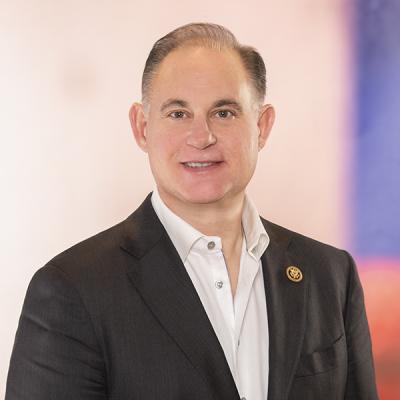2024 Post-Election Analysis
Following a hotly contested election, Donald Trump is once again the president-elect and will return to the White House on January 20, 2025. He will do so with a dominant electoral college win, potentially a win of the popular vote, and the backing of a new Republican majority in the United States Senate as he seeks to impose his vision for American governance. While several House races are still undecided, if Republicans maintain control of the House, which seems likely, we can expect the new administration and Congress to hit the ground running, with a mandate-driven push from the GOP in pursuit of their agenda.
In recent months, ML Strategies has published a series of posts outlining what to expect from the incoming administration and the 119th Congress. These posts highlighted key policy proposals and priorities from both presidential candidates and both parties in Congress. Topics covered included energy and sustainability, US-Canada cross-border relations, tax policy, health care, international trade, infrastructure, consumer product safety, and financial services.
Once the final election results are confirmed, we will offer a detailed analysis of these issues, examining how the incoming Trump administration and Republicans in Congress plan to address them. We'll also highlight key leadership changes on congressional committees, along with individuals being considered for prominent positions in the new administration. In the meantime, please read on for a brief recap of the topics discussed in our pre-election series on President-elect Trump and congressional Republicans.
Energy & Sustainability
There is still significant uncertainty around particular actions and timing pending finalization of the House tallies and personnel and policy announcements. But certainly, a second Trump administration, as discussed in our pre-election post on energy & sustainability will prioritize deregulation and increased domestic fossil fuel production, including expanding offshore drilling, easing fracking rules, and opening more federal lands for exploration. He most certainly will lift the pause on LNG export permits, and overhaul DOE’s role in the future permit approval process. He will also likely follow through on his pledge to withdraw the US again from the Paris Agreement. Fossil fuels will receive increased support and emphasis over renewables, and if given legislative support, it’s likely that renewable energy technology development programs and incentives will be cut in favor of fossil and nuclear programs, similar to his first term.
Energy will no doubt be part of any new tariffs that Trump made one of the centerpieces of his campaign. The announcement on Friday that Robert Lighthizer will return as the US Trade Representative makes good on the promise. But navigating energy supply chains may be difficult as we saw in the first term. Similarly, the fate of the Inflation Reduction Act (IRA) remains unpredictable as clean energy stocks, such as solar, fall due to worries that Trump will attempt to repeal the IRA. As we pointed out in August, the IRA’s heavy benefits for energy projects in Republican districts will make unraveling it politically difficult.
Environmental and permitting regulations will no doubt be targeted. However, it’s unclear if the approach will be moderate, such as continued refinement around the Manchin-Barasso permitting bill, or something much more sweeping, given the potential for a congressional majority. Also unknown is the role the recent Supreme Court ruling striking down the Chevron doctrine could play in any new rulemaking.
Other questions we are tracking are how far the new administration will go in reducing or eliminating funding for the Energy Department’s Loan Programs Office and the Advanced Research Projects Agency-Energy (ARPA-E), or even implementing proposals from third-party groups to do away with the Office of Clean Energy Demonstrations and Office of Manufacturing and Energy Supply Chains given the administration’s strong position. We will also be looking to see who the president-elect nominates to serve as Secretary of Energy. Will it be North Dakota Governor Doug Burgum, who Trump has hinted at already for the position, or former DOE Secretary Dan Brouillette, who just resigned from the Edison Energy Institute after briefly serving as its president? The other significant unknown is the potential role and influence of Elon Musk given his significant clean energy interests.
Congressional Republicans are expected to strongly support Trump’s energy agenda, even while questions of leadership become resolved. Figures like House Speaker Mike Johnson (R-LA), who is expected to keep his role, and Rep. Brett Guthrie (R-KY), one of the candidates seeking to lead Republicans on the House Energy and Commerce Committee, have promoted policies that support energy independence, nuclear energy, and generally oppose government subsidies for renewables. Contenders for Senate Majority Leader, including Sens. John Thune (R-SD), John Cornyn (R-TX), and Rick Scott (R-FL) will continue to back regulatory reforms while Sen. Mike Lee (R-UT), set to chair the Senate Energy Committee, will advocate for free-market policies, and oppose renewable energy subsidies. Sen. Lee has been mentioned as a possible nominee for attorney general in the new administration. On the Senate Environment and Public Works Committee, Sen. Shelley Moore Capito (R-WV) is poised to become chair, with Sen. Sheldon Whitehouse (D-RI) becoming ranking member. Sen. Capito believes in an “all-of-the-above” energy policy, with a particular focus on supporting the coal industry, building out value chains for natural gas, and advocating for carbon capture technology development.
US-Canada Cross-Border Issues
As we outlined back in August, Donald Trump's approach to US-Canada relations has been complex and at times confrontational. While he renegotiated NAFTA into the United States-Mexico-Canada Agreement (USMCA), he frequently criticized the deal and Canada’s trade practices, emphasizing a tough stance on trade imbalances.
On energy policy, as discussed above, Trump will prioritize fossil fuel development, pushing for expanded energy infrastructure such as pipelines, and reducing regulatory barriers. His policies will align with his "America First" agenda, focusing on energy independence and potentially creating tensions with Canada over environmental regulations. Congressional Republicans will also support energy independence, with an emphasis on nuclear energy and fewer restrictions on cross-border projects.
On international trade, he will likely push for renegotiating trade agreements to benefit US infrastructure projects, including pipelines. He has consistently criticized environmental regulations as hindrances to development, promoting deregulation to facilitate infrastructure growth. Congressional Republicans may focus on modernizing cross-border infrastructure, particularly in digital and cybersecurity sectors, aligning with Canada’s priorities in this space.
Trump’s second term will likely see continued support for policies favoring US investment, such as the 2017 Tax Cuts and Jobs Act. He is expected to resist reforms that affect foreign ownership and prioritize protecting US economic interests. Republicans, led by figures like Sen. Mike Crapo (R-ID), who will chair the Senate Finance Committee, would probably oppose Canada's Digital Services Tax, viewing it as discriminatory against American companies.
Trump has proposed a 10% tariff on all imports, with Canada likely exempt due to the USMCA. His second administration will push for renegotiations of the USMCA to better serve US interests, focusing on reducing regulatory constraints and emphasizing economic nationalism. Republicans on Capitol Hill will continue to push for strong enforcement of the USMCA, particularly concerning agricultural exports and market access.
Trump will prioritize US tech interests, pushing for stronger data privacy regulations, enhanced intellectual property protections, and greater cooperation with Canada on cybersecurity. He could seek to challenge Canadian tech policies that conflict with US interests while promoting regulatory reform to benefit American businesses. Republicans on Capitol Hill will likely focus on reducing regulatory barriers and promoting innovation, with a particular interest in blockchain technology.
Overall, Trump's second term would likely emphasize economic nationalism, energy independence, and deregulation, with a more competitive approach to US-Canada relations, particularly on trade and energy issues.
Tax Issues
As discussed in our August election preview on tax issues, Donald Trump’s tax policy for his second term will focus on extending and expanding the Tax Cuts and Jobs Act (TCJA), of which a number of major provisions are set to expire in 2025. This has set the stage for a significant tax bill — especially if Republicans have unified control of Congress. Republican leaders have already announced that passing a major tax bill will be a top priority for the first 100 days of the new Trump administration. Key expiring TCJA provisions include the increase in the standard deduction and elimination of personal exemptions; the decrease in the top marginal rate for individual income taxes from 39.6% to 37%; the $10,000 cap on deductibility of state and local taxes (SALT); the increase in the child tax credit; the 20% deduction for qualified pass-through income for sole proprietorships, partnerships, and S-corporations; and the doubling of the estate tax exemption. The TCJA permanently reduced the corporate tax rate from 35% to 21%, but Trump will seek to lower the rate further, saying he wants to see the rate dropped to 15%. Over the course of the recent presidential campaign, the president-elect also proposed exempting tipped wages, overtime pay, and Social Security benefits from taxes.
Trump may also target the green energy provisions of the Inflation Reduction Act. If Congress resists, he could use Treasury and IRS regulatory authority to make changes without new legislation.
House Speaker Mike Johnson and key Republican leaders like Rep. Jason Smith (R-MO), the current chair of the House Ways and Means Committee, and Sen. Mike Crapo (R-ID), the incoming chair of the Senate Finance Committee, support similar tax policies, including making TCJA cuts permanent, simplifying the tax code, and reducing corporate tax rates. They also advocate for regulatory reforms to boost economic competitiveness.
With unified control of Congress, Republicans would pass the tax bill using budget reconciliation, which is a fast-track legislative process that allows for changes to taxes and mandatory spending with a simple majority vote of 51 in the Senate, bypassing the 60-vote filibuster threshold. The process is limited to fiscal matters and typically enables one-party control to pass significant policy changes with minimal opposition.
Health Care
As discussed in our earlier analysis, in a second Trump administration, health care policy will likely focus on targeted changes rather than the bold reforms of his first term. While Trump appears to have moved away from fully repealing and replacing the Affordable Care Act (ACA), he is likely to seek modifications, such as eliminating marketplace subsidies and cutting outreach funding. Trump may also push for Medicaid work requirements, block grants, and restrictions on Medicaid funding for gender-affirming care. On Medicare, while there is no push for cuts, he may support measures to reduce spending. On abortion, Trump has shifted to allowing states to regulate abortion, moving away from national bans. Seven of the ten state ballot initiatives to protect reproductive rights were approved in the recent elections.
Trump’s approach to drug pricing may align with some of the Biden administration's policies, such as efforts to reduce prices through international price comparisons and regulating pharmacy benefit managers (PBMs). While he may not fully reverse the IRA's drug price negotiations, a second Trump administration could advocate for smaller reductions in negotiated prices and possibly reinstate the Most Favored Nation rule. Trump has also expressed support for reducing surprise medical bills, a policy he enacted during his first term.
Congressional Republicans will prioritize reducing government spending on health care, cutting the ACA, Medicare, and Medicaid, protecting states' rights to address the issue of abortion, and limiting federal funding for gender-affirming care. Proposed measures include creating Medicaid block grants, imposing work requirements, and ending ACA subsidies from the IRA. Republicans will focus on trimming the ACA and continue efforts to reform PBMs, with bipartisan support for such reforms.
Multiple congressional committees have some degree of jurisdiction for health care policy. Rep. Jason Smith (R-MO) will remain head of the House Ways and Means Committee, focusing on making health care more affordable. The House Energy and Commerce Committee will have new GOP leadership, with Reps. Brett Guthrie, Bob Latta, and Richard Hudson competing. In the Senate, Sen. Mike Crapo (R-ID) will chair the Finance Committee with a focus on mental health care and PBM reform. The Senate Health, Education, Labor and Pensions (HELP) Committee, likely led by Sen. Bill Cassidy (R-LA), will prioritize PBM reform, the SUPPORT Act reauthorization, AI in health care, and FDA reauthorization, including clarifying medical device regulations.
Trump has previously indicated that he will appoint Robert F. Kennedy Jr. as either the Food and Drug Administration (FDA) commissioner or secretary of Health and Human Services (HHS). Kennedy is a well-known critic of vaccines and pharmaceutical companies and has stated his intentions to cut entire departments within the FDA, such as the nutrition department. Kennedy also claims that he will focus on removing fluoride from water, banning pharmaceutical advertising, and removing toxins from food while being less strict on pharmaceutical companies’ mergers and acquisitions. However, given the narrow Republican margin in the Senate, it is unlikely that moderate Republicans, along with Democrats, would confirm Kennedy to head FDA or HHS.
International Trade
In our pre-election analysis on international trade, we shared that in his second term Trump will continue the "America First" trade policies of his first term, focusing on unilateral actions, reducing the trade deficit, and protecting US industries. He will maintain a protectionist approach, using tariffs as a key negotiating tool, especially with China, and is likely to introduce new tariffs, including a new tariff on all imports and potentially a 60% tariff on Chinese goods. Trump will push for reshoring manufacturing, reducing U.S. reliance on foreign supply chains, and incentivizing domestic production in critical sectors.
His trade agenda will also include renegotiating agreements like the USMCA and potentially revisiting or withdrawing from other trade deals. Protecting US intellectual property will remain a priority, with tariffs and sanctions used to safeguard technological and pharmaceutical innovations. He will continue to prioritize economic benefits and energy independence over climate considerations in trade policy. In international relations, Trump will adopt a confrontational stance, using trade policy and sanctions to address conflicts with nations like Russia and Iran. Overall, his second term will focus on strengthening domestic industries, reducing foreign dependency, and aggressively enforcing trade rules.
House Speaker Mike Johnson (R-LA) has a history of advocating for free trade to promote economic growth and job creation while ensuring fair trade practices and addressing trade imbalances that disadvantage US businesses. He has supported taking a tough stance on China, focusing on intellectual property theft, state subsidies, and securing the semiconductor supply chain by defending Taiwan. In the 119th Congress, Republican leadership at the committees of jurisdiction for international trade issues will remain unchanged with Sen. Mike Crapo (R-ID) chairing the Senate Finance Committee and Rep. Jason Smith (R-MO) leading the House Ways & Means Committee Republicans. Both support free trade, focusing on reducing barriers, protecting US industries, and addressing China’s unfair trade practices. Crapo has a strong focus on agricultural exports, while Smith advocates for expanded market access, stronger trade enforcement, and countering Chinese influence, especially regarding critical minerals.
Infrastructure
Our September pre-election analysis on infrastructure shared that despite his previous administration’s focus on infrastructure, Donald Trump did not launch major initiatives during his first term. As a candidate this year, he has suggested that he would dismantle federal programs like the Infrastructure Investment and Jobs Act (IIJA), which is set to begin its final year of funding in October 2025, overlapping with his incoming administration. While the Biden-Harris administration will prioritize finalizing IIJA spending before leaving office, many IIJA projects are popular in red states and districts, which could complicate Trump’s efforts to reduce or eliminate the program, given their appeal to voters and some Republicans in Congress.
With his return to the White House, Trump’s infrastructure agenda could include a focus on streamlining regulations to reduce bureaucratic red tape and accelerating the construction and repair of roads, bridges, and energy systems. His administration will also prioritize public-private partnerships, aiming to leverage private sector investment to drive innovation and efficiency. Energy infrastructure, particularly the expansion and modernization of pipelines, refineries, and energy distribution networks, will be a key focus. He will also prioritize strengthening border infrastructure, including barriers and surveillance systems, as part of his broader immigration policy. Additionally, he has revived the idea of a federal sovereign wealth fund, potentially funded by tariff revenues, to finance infrastructure projects, a concept he may further develop during his second term.
Republican leadership of the key infrastructure committees will remain unchanged in the 119th Congress. Rep. Sam Graves (R-MO), Chairman of the House Transportation & Infrastructure Committee, will continue to lead efforts to reduce regulatory barriers, streamline permitting, and explore funding mechanisms like public-private partnerships. He is committed to addressing infrastructure needs in rural areas, ensuring essential investments in roads, bridges, and other infrastructure. In the Senate, Sen. Shelley Moore Capito (R-WV) will serve as chair of the Committee on Environment and Public Works, focusing on modernizing transportation infrastructure to improve safety and efficiency. She has also supported regulatory reform, public-private partnerships, and prioritizing rural infrastructure needs, including roads, bridges, and broadband access.
Consumer Product Safety
As discussed in our earlier analysis on the topic, under a second Trump administration, the Consumer Product Safety Commission (CPSC) will see a change in leadership, with Trump changing out the chair — possibly a current Republican commissioner — and appointing Republican commissioners as slots open up to reshape the agency's regulatory posture. Historically, Republican-led CPSC commissions are more restrained in their approach to enforcement, preferring voluntary standards and industry initiatives over mandatory regulations and overaggressive enforcement actions. This would contrast with the current Democratic-led commission, which has been more aggressive in setting standards, issuing recalls, and imposing penalties. With new Republican appointees, Trump’s second administration will likely prioritize a lighter regulatory touch, reducing CPSC's reach in mandatory rulemakings and relying more on consensus standards and private sector initiatives to address product safety concerns. Additionally, however, Trump’s second administration will focus on e-commerce accountability and increasing scrutiny of Chinese-made goods, areas of bipartisan concern that are expected to continue will continue regardless of political control. The two current Republican commissioners have touted their efforts to focus on e-commerce and thus Chinese goods imports.
The legislative agenda of congressional Republicans will likely align with Trump’s deregulatory approach. Republican lawmakers tend to oppose streamlined rulemaking processes that bypass thorough procedural steps. Instead, they advocate for more comprehensive evaluations and cost-benefit analyses before implementing mandatory product safety standards. In particular, Republicans will be more focused on preventing overreach by regulatory bodies like the CPSC and protecting businesses from burdensome regulations. As a result, under a Republican Congress and a second Trump term, legislative actions will likely focus on scaling back CPSC's regulatory power while supporting industry-led solutions for product safety.
Financial Services
As discussed in our earlier analysis focused on financial services, during his first term, Trump focused on deregulating banks and financial institutions, arguing that reducing restrictions would spur economic growth. His signature achievement was the Economic Growth, Regulatory Relief, and Consumer Protection Act, which rolled back portions of the Dodd-Frank Act, including stress tests for small- and medium-sized banks and loan data reporting requirements. A second Trump administration will likely aim to reverse the Biden administration's banking regulations, including reinstating Dodd-Frank provisions and strengthening consumer protections. Federal Reserve Chair Jerome Powell will serve out the remainder of his term, stating he won’t resign if Trump asks — an event that is unlikely despite Trump’s outspoken belief that the president should have more influence on Fed decisions.
He will also seek to resist further bank regulations, oppose reinstating stress tests for large banks, and scale back the Consumer Financial Protection Bureau (CFPB), which he views as stifling innovation. He will also likely push for the repeal of ESG disclosure rules and limit the SEC’s climate regulations. He has expressed support for deregulating payday loans, halting the CFPB’s collection of mortgage data, and curtailing the Small Business Administration’s outreach to underserved communities. Additionally, he may advocate for increasing Section 7(a) loan limits to $50 million for equipment and facility upgrades. Trump has also called for more influence over the Federal Reserve, potentially reducing its mandate and lender-of-last-resort function. On cryptocurrency, Trump has pledged to make the United States a global leader in crypto by creating a Bitcoin advisory council and government Bitcoin stockpile.
With the retirement of current House Financial Services Committee Chair Patrick McHenry (R-NC), Republicans will choose a new leader next Congress, with Frank Lucas (R-OK), Bill Huizenga (R-MI), Andy Barr (R-KY), and French Hill (R-AR) all competing for the position. While all four favor deregulation, Barr is most vocal about his priorities, including increased oversight of the Federal Reserve, weakening the CFPB, cracking down on ESG investing, and promoting cryptocurrency regulations. Lucas and Huizenga oppose the SEC's climate disclosure rule, while Lucas also opposes stricter capital requirements for banks. Hill advocates for deregulating financial institutions and has opposed the SEC's digital asset regulations.
In the Senate, Republicans on the Banking, Housing, and Urban Affairs Committee will remain under the leadership of Senator Tim Scott (R-SC), who opposes the Basel III Endgame proposal to raise capital requirements and has criticized the CFPB's credit card fee rule. Scott has also supported the creation of a digital-asset committee to oversee cryptocurrency. On the Senate Finance Committee, Mike Crapo (R-ID) will continue to lead Republicans, resisting increased regulatory burdens and opposing ESG requirements while defending the 2018 Economic Growth, Regulatory Relief, and Consumer Protection Act, which rolled back certain Dodd-Frank provisions.
Democrats will have new leadership at the Senate Committee on Banking with the electoral defeat of Sen. Sherrod Brown (D-OH), the current chairman of the committee. It is unclear who will replace him as Ranking Member on the committee next year, but next in line is Sen. Jack Reed (D-RI) who would have to give up his leadership position at the Armed Services Committee, and Sen. Mark Warner (D-VA) who would have to vacate his leadership position at the Intelligence Committee. Sen. Jon Tester (D-MT) was also in line for the leadership position but was also defeated for reelection. If all Reed and Warner decline to lead Democrats at the committee, next in line is Sen. Elizabeth Warren (D-MA) — a frequent critic of Wall Street who first conceived of the Consumer Financial Protection Bureau.
What to Expect in the Upcoming Lame-Duck Session of Congress
If Republicans gain control of the House, an incoming Republican trifecta is likely to push off bipartisan initiatives that had a chance at passing this year, such as permitting reform, until next year when Republicans will have the power to craft policies closer to their liking. Congress will either pass the FY25 Appropriations Bill or a Continuing Resolution extending funding discussions into 2025. The FY25 NDAA, FY25 Farm Bill, and FY25 Resources Development Act are still pending reauthorization.
- Prior to the election, the Chair of the House Financial Services Digital Assets Subcommittee was optimistic that the Financial Innovation and Technology for the 21st Century Act, which would establish a regulatory framework for digital assets such as blockchain, would pass. Also, Medicare Telehealth Flexibilities, Medicare Physician Payment Adjustments, and the Acute Hospital Care at Home Waiver are set to expire on December 31, 2024 and need legislation to extend. In September, the House Energy and Commerce Committee unanimously passed the Telehealth Modernization Act of 2024, and this bill could be included in the larger House spending bill.








